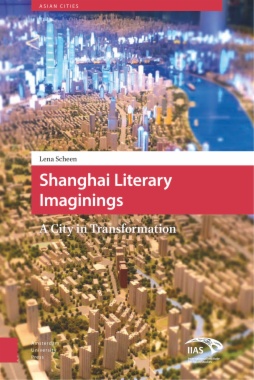This book draws on a wide range of methods-including approaches from literary studies, cultural studies, and urban sociology-to analyse the transformation of Shanghai through rapid growth and widespread urban renewal. Lena Scheen explores the literary imaginings of the city, its past, present, and future, in order to understand the effects of that urban transformation on both the psychological state of Shanghai's citizens and their perception of the spaces they inhabit.
- Cover
- Contents
- Acknowledgements
- Conventions
- Introduction
- Shanghai Literary Imaginings: The City of Feeling Rising out of the City of Fact
- The City of Fact
- A City in Transformation
- Literature in Shanghai and Shanghai in Literature
- This Book
- 1. Mappings
- Drawing Mental Maps of Memories
- Mapping Shanghai
- “City Map”: The Series and the Authors
- Literary Maps and Mental Maps
- Mapping Memories
- A Mental Map of Hongkou
- Concluding Remarks
- 2. Seduction
- Reproducing the City as Femme Fatale
- Weihui and Ge Hongbing: Life and Works
- Critical Reception: Selling Her Body and Selling His Intellect
- A Complicated Love Affair: Shanghai and the Femme Fatale
- Weihui: The Screaming Body of a Shanghai Babe
- Ge Hongbing: Whispering Souls on a Sandbed
- An Imagined Love Affair: Coco and Zhuge
- Concluding Remarks
- 3. Nostalgia
- Restoring Old Buildings to Rewrite the Past
- Wang Anyi and Chen Danyan: Life and Works
- Shanghai Nostalgia: A Culture of Reappearance
- Wang Anyi: The Song of Everlasting Sorrow of Shanghai’s Longtang
- Chen Danyan: The Literary Preservation of Shanghai Memorabilia
- Concluding Remarks
- 4. Escape
- Mian Mian and Jin Haishu: Life and Works
- Transformation and the Notion of Escape
- Mian Mian: Escape into the Crowd
- Jin Haishu: Escape into the Garbage Dump
- Mian Mian and Jin Haishu: Escape into the Bathroom
- Concluding Remarks
- In Conclusion
- The Shape of a City Changes Faster than the Human Heart Can Tell
- Glossary
- Works Cited
- Index
- List of Figures
- Figure 1.1 �The cover of the story collection City Map and two of its stories’ first publication in the journal Shanghai Literature
- Figure 1.2 �A map of Shanghai (1919), from the Library of Congress
- Figure 1.3 �Literary Map 1: The main settings of the stories in City Map
- Figure 1.4 �Literary Map 2: The urban elements in the stories “Come Over” and “Hongkou Anecdote”
- Figure 1.5 �Hand-drawn maps by Yin Huifen (left) and Ding Liying
- Figure 1.6 �The maps of “Born on Sichuan North Road” (left) and “Bangbeinese” (grey texture in river added)
- Figure 1.7 �The maps of “Fading Palace” (left) and “This Shore and the Other Shore” (grey texture in rivers added)
- Figure 2.1 �The song ‘Miss Shanghai’, by cartoonist Friedrich Schiff (1908‑68; resident in Shanghai from 1930 until 1947)
- Figure 3.1 �From left to right: the covers of Wang Anyi’s In Search of Shanghai and The Song of Everlasting Sorrow, and Chen Danyan’s Shanghai Trilogy
- List of Tables
- Table 1.1 �Table of the authors of the stories collection City Map
- Table 1.2 �The table of contents of the stories collection City Map
- Table 2.1 �Fragments from Shanghai Babe and Sandbed

